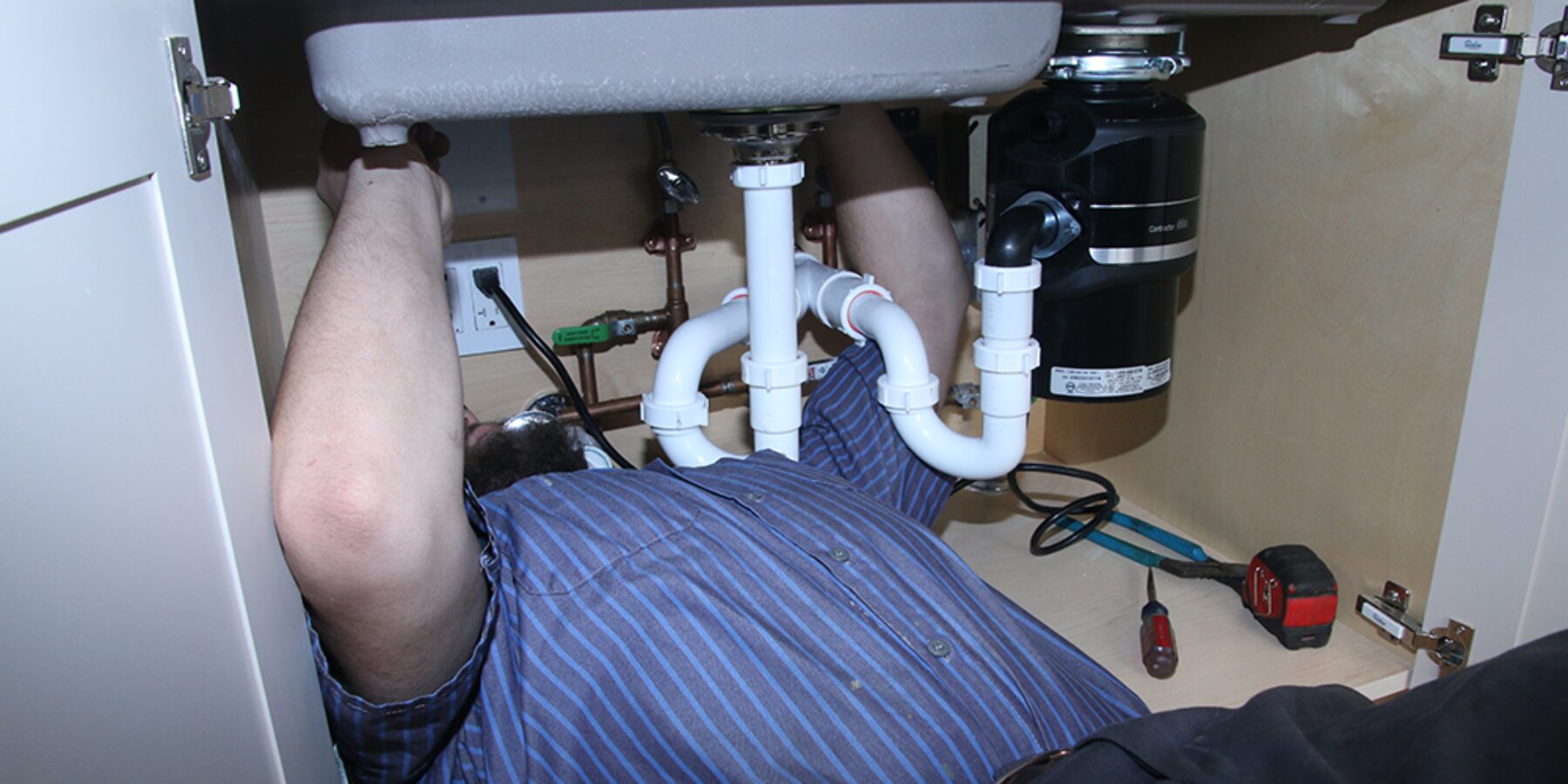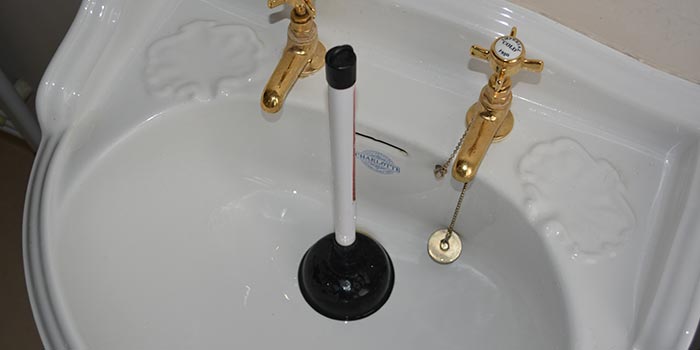Steps To Quickly Repair A Slow-Draining Sink
Steps To Quickly Repair A Slow-Draining Sink
Blog Article
What are your ideas regarding Solved! How to Fix a Slow Sink Drain?

Introduction
We've all been there: You're brushing your teeth or washing your hands, and you notice the water pooling in the sink. As opposed to promptly swirling away, it sticks around, turning your once-refreshing morning routine into a miniature swamp scene. A slow-draining sink isn't simply annoying; it's often an indicator of bigger pipes problems lurking beneath the surface area. Fortunately is that most slow-draining sinks can be repaired with a little knowledge, a few fundamental tools, and some persistence. Ready to tackle this job head-on? Let's roll up our sleeves and dive right in.
Recognizing the Root Causes Of a Slow-Draining Sink
Before you start poking around in your pipelines, it aids to know what could be triggering the stagnation. Recognizing the root cause makes it much easier to select the best fix.
Tools and Materials You'll Need
The right tools make all the difference. Fortunately, you won't require a fully equipped plumbing professional's van to do the job.
Step-by-Step Guide to Fixing a Slow-Draining Sink
Now, allow's enter into the nitty-gritty. This detailed process will certainly guide you through basic strategies to restore your sink's water drainage.
Action 1: Remove and Tidy the Stopper
Typically, the stopper (that tiny plug you lower to block water) is the first perpetrator. Remove it meticulously and clean off any type of hair or gunk entraped around its base. Wash it thoroughly prior to placing it back in position.
Step 2: Utilize a Plunger to Dislodge Debris
Got that plunger ready? Placement it over the drain and provide it a few firm pumps. The concept is to produce suction that can loosen up any clog. If you see little bits of debris floating up, you get on the best track.
Action 3: Try a Drain Snake or Cord Hanger
If the bettor does not do the trick, it's time to highlight the drain snake. Carefully feed it right into the drain and twist as you go. You may really feel some resistance-- that's likely the clog. Keep turning and drawing until you eliminate the blockage. If you do not have a drainpipe snake, an aligned cable wall mount can operate in a pinch.
Tip 4: Use a Do It Yourself Drainpipe Cleanser
A natural cleaner made from baking soda and vinegar can break down recurring grime. Put half a mug of baking soda into the drain, complied with by half a mug of vinegar. Let it fizz for around 15 minutes, after that flush with warm water. This chain reaction often does marvels for minor clogs.
Tip 5: Reconstruct and Evaluate the Sink
Put every little thing back with each other and run the tap. Does the water now swirl down the drain at a respectable rate? If yes, give on your own a pat on the back. If not, don't misery-- there are still a couple of even more tricks up your sleeve.
Important Devices for DIY Fixes
A plunger is your best starting factor. A little, sink-sized bettor produces suction that can dislodge small blockages. For even more consistent clogs, a drain serpent (in some cases called a plumber's auger) works marvels. A pair of gloves, a flashlight, and perhaps a set of protective safety glasses are also helpful.
Advised Cleaning Solutions
Mild meal soap and warm water can aid break down greasy build-up. A blend of cooking soft drink and vinegar is a time-tested natural home remedy, and chemical cleansers offer a more eco-friendly technique. Maintain chemical drain cleansers as a last option, as they can be rough on your pipelines.
Usual Culprits Behind Slow Drain
So, what's clogging points up? Typically, it's a blend of everyday particles-- assume hair, soap residue, toothpaste deposit, and leftover food fragments. With time, these little bits build up and cling to the pipeline walls, gradually tightening the flow and making it harder for water to go through. In some cases, natural resource from tough water can additionally contribute to the gunk, producing the excellent storm for persistent clogs.
When is it Time to Act?
If you observe the water draining pipes slower than usual, it's a good idea to interfere sooner instead of later. Waiting also long could cause finish obstructions, unpleasant odors, or perhaps pipeline damage. If the water takes more than a couple of secs to clear out after shutting off the tap, consider it a warning and get ready to put on your DIY hat.
Safety And Security First: Preventative Measures and Prep work
Prior to you launch into unclogging mode, think about safety and security. You're handling potentially unclean water and debris, so slip on a pair of gloves. If you're using chemical cleansers, ensure the area is well-ventilated and comply with the directions on the label.
Safety Gear and Work Area Setup
Put down some old towels or rags around the sink location to catch splashes. Remove any things that could get in your means, like soap dispensers or toothbrush holders. See to it you have good illumination-- grab a flashlight if required.
Alternative Approaches for Stubborn Clogs
Not all blockages are developed equivalent. If your sink still refuses to comply, think about these alternative options.
Baking Soda and Vinegar Technique
We currently touched on this, however it's worth noting once more. This gentle, green approach is more secure than chemical cleansers and often fairly effective.
Chemical Drain Cleaners
Enzyme-based cleansers use all-natural germs to digest organic matter. They're an outstanding option if you're aiming to stay clear of severe chemicals. Just bear in mind, they may take a bit longer to function their magic.
Chemical Drainpipe Cleaners: Advantages And Disadvantages
Chemical cleaners can blast through hard clogs quick, yet they're not without downsides. They can generate warm and fumes, damages pipes if utilized exceedingly, and posture ecological threats. Utilize them sparingly, and constantly adhere to the directions thoroughly.
Preventive Measures to Maintain Your Sink Flowing
Prevention is the best treatment. By embracing a couple of basic habits, you can keep your sink from reducing to begin with.
Normal Cleansing Routines
Clean down the sink basin and component area on a regular basis. Get rid of hair or food bits before they have an opportunity to wash down the drainpipe.
Avoiding Unsafe Compounds Down The Tubes
Hesitate before disposing coffee grounds, grease, or fibrous vegetable scraps down the sink. These wrongdoers hold on to pipe walls, creating clogs with time.
Routine Maintenance Checks
Arrange a fast monthly evaluation. Run hot water with the sink for a few minutes, focusing on the flow. If it appears slow, act quickly before it comes to be a full-blown blockage.
When to Call a Specialist Plumber
Often, regardless of just how difficult you try, that block just will not budge. That's when it's time to generate the pros.
Indications That Suggest a More Severe Concern
If your sink drains pipes slowly regardless of numerous attempts, or if you see water backing up in various other components (like your shower or toilet), you might have a much more significant pipes concern prowling deeper in the system.
Balancing DIY Initiatives with Expert Help
While DIY can save you money and provide a sense of achievement, there's no pity in calling a professional. A professional plumbing technician can examine your entire plumbing arrangement, ensuring there's no underlying damage or long-term problem that might cost you a lot more later on.
Contrasting Costs and Long-Term Solutions
Before deciding, think about the big picture. An inexpensive, quick fix may resolve the issue briefly, however purchasing a much more irreversible remedy can conserve you money and tension over time.
Evaluating the Expenses of DIY vs. Specialist Solutions
Do it yourself repairs frequently cost little bit greater than the price of a bettor or a bottle of baking soft drink. Expert services, on the other hand, featured a cost however may stop repeated concerns and expensive repairs later on.
Investing in Quality Fixtures and Upgrades
If your sink's style contributes to regular clogs, it may be worth updating to higher-quality fixtures or altering the pipes format. Consider this an investment in your house's functionality and comfort.
Verdict
A slow-draining sink can seem like a minor irritability, but it's frequently an indicator that your pipes requires a little tender loving care. By recognizing the origin, using the right tools and methods, and dedicating to easy safety nets, you can keep your sink streaming freely. And when all else fails, never be reluctant to call an expert-- your home's pipes deserves the financial investment in treatment and maintenance.
Three Common Ways to Fix a Slow Drain
Baking Soda Method
Boil a full pot of water. Measure out cup of baking soda and pour it down the drain. Then take cup of the magical cleansing substance known as white vinegar and drop that down there too. Allow the mixture to fizz in the drain for five minutes as the vinegar and baking soda combine. Now dump in that whole pot of boiling water. This combination of cleaning substances should clear out anything that is causing your sink to drain slowly. If it doesn t...
Zip-It
If the baking soda method doesn t clear out your drain, it may be because a significant amount of hair and/or other debris has collected there and you need to remove it. Purchase a Zip-It tool at any home improvement or hardware store and insert it into your drain. It will catch any collected hair or debris that s blocking the flow of water. Pull it out. If it s got a big clump of hair, etc. on the end, you ve probably got your culprit.
Drain Cleaner
If these methods don t work, there is the standard drain cleaner that you can also buy in a hardware store or even your local grocery store. It s better if you can use a household solution, but these drain cleaners often work in a pinch. They re very simple to use. You generally just dump them in your drain and wait. If even this method is not effective, it may be time to call the plumber.
https://www.mrrooter.com/oneida/about-us/blog/2017/july/three-common-ways-to-fix-a-slow-drain/

I ran across that post on Solved! How to Fix a Slow Sink Drain while surfing around the internet. Don't hesitate to set aside a second to distribute this blog if you appreciated it. Thank you for your time spent reading it.
Source This Article Report this page